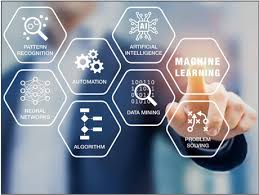Introduction

It is a scenario that seems to become increasingly prominent in the world of Major League Soccer (MLS). Machine learning, or ‘big data,’ is changing the landscape of soccer by providing new techniques to predict outcomes that were only dreamt of before. This piece seeks to establish the role of efficient AI for MLS soccer predictions, the technology involved, and the influence it will bring to the game.
This paper, therefore, seeks to explore the kind of information people look at when making soccer predictions, the ways in which people make soccer predictions, how soccer prediction has evolved over the years and the legal implications of soccer predictions.
Early Methods
Soccer predictions can no longer be considered a mere hunch or reliance on some key indicators. In the beginning, more focus and emphasis were placed on simple factors, including the playing form of the teams, h2h statistics and players’ form.
Data analytics can be defined as the analysis of large and complex data sets using tools and technologies to find patterns and trends that help make business decisions.
Data analysis made predictions much more nuanced as the complexity and size of the data collected grew. Forecasting started to become more sophisticated, representing quantitative differentials and statistical modeling.
Benefits, Challenges, and Regulatory Framework of AI in MLS Forecasting
Machine Learning Algorithms
Decision trees and neural networks are the basic components of machine learning that make AI-driven predictions. These algorithms involve extensive data analysis to learn patterns and relationships in the data that enable the prediction of future outcomes. Examples of more familiar algorithms encompass decision trees, neural networks, and support vector machines.
Big Data Integration
AI systems integrate several data as information inputs, including number crunching on players, team strategies, weather, or even social media sentiments. This approach is more often than not more effective than other models because it combines several predictors at once.
Real-Time Predictions
Another plus to using AI for soccer forecasts is the flexibility to provide real-time updates. Using AI models, it’s possible to make predictions on the fly and even get real-time data once it becomes available.
In this paper, the authors first explore using three different AI techniques to predict MLS in a patient and then determine the stability of the expected value.
Betting Markets
Artificial Intelligence forecasts are changing the face and growth of betting lines. Some of the sophisticated models comprise advanced algorithms that help bettors make appropriate decisions that can eventually lead them to success.
This paper examines team dynamics and how colleagues work together to achieve organizational objectives and appraise their performance.
How is AI applied in Major League Soccer teams today? In emergency cases, MLS teams use AI to analyze the behavior of the opposite team, set tactics and strategies, and even increase the effectiveness of soccer athletes. By predicting specific outcomes, teams can strategically plan and overcome adversaries to achieve a better position.
Fan Engagement
AI predictions are also helpful in improving the relationship between fans and the fan collective. Fanatic admirers can now get more basic predictions and study the sport, making it more prosperous, fun, and absorbing.
Challenges and Limitations
Data Quality and Availability
Importantly, artificial intelligence’s performance or its ability to produce an accurate prediction is highly dependent on the type and accessibility of the data. Lack of adequate data also poses a significant risk of controlling data that is wrong in almost all cases.
Model Interpretability
Explainability and interpretability are the biggest challenges to advanced AI models like deep neural networks. Model interpretability became critical as people wanted to know how the model arrived at its prediction.
Ethical Considerations
Adopting AI in the sporting context raises important questions of fairness, including match-fixing and its influence on sportsmanship. It is essential to be as open as possible and remain fairest when it comes to decisions a lot of the time.
AI to Transform Soccer Predictions: A Proposal for MLS
Enhanced Accuracy
Predictions about AI technology are expected to be refined as technology advances. Chapter 2 stated that complex algorithms with huge and richer data sets will enable better predictions.
Integration with Augmented Reality
Potential future uses may include combining the technology with Apps such as augmented reality (AR) to give fans and analysts an actual and immediate look at the game.
Broader Applications
In addition, soccer could be improved by using AI in player scouting, preventing injuries, and creating tailored training programs thanks to new possibilities opened with the help of advanced technologies.
Conclusion
The integration of artificial intelligence or machine learning in predictions for MLS soccer games is set to offer new features and change many sectors related to the sport. Technological developments in Soccer are always ahead of expectations, meaning AI could be a key part of soccer in the future as analysis of all data brings more enjoyable, fair and efficient Soccer.



